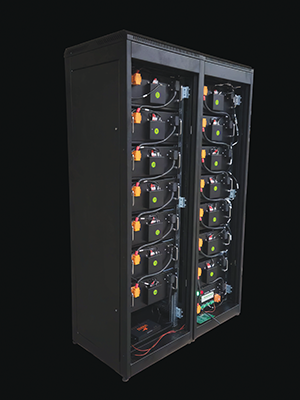

South Africans have become accustomed to high levels of loadshedding, but the next big phase in the country’s energy infrastructure development is upon us. High-voltage (HV) LiFePO4 battery energy storage systems, commonly referred to as BESS, which drastically improve the power reliability prospects for businesses, have been around for some time, but are expected to see a massive surge in 2024.
HV BESS systems are designed for industrial, commercial, and utility-scale applications. We are seeing a surge in enquiries from critical players in agriculture, manufacturing, property development, residential and commercial property management, and even the education sector.
Businesses in crucial sectors in the economy realise that they must take control of their own energy security, and business leaders are realising that renewable energy storage is a far more viable and reliable option than old-paradigm internal combustion generators.
There are three main reasons for this. The first two are commercial. Hauling large loads of fuel to power generators comes at a significant cost, especially in outlying areas. Beyond this, the diesel itself is significantly more expensive than it was pre-COVID, while maintaining and servicing large generators also puts a large financial strain on organisations that may already be operating on tight margins.
In addition to this, the world is demanding a shift towards renewable energy. South African businesses have no choice but to accept this, and accept that access to markets such as the EU will become increasingly difficult and restrictive unless businesses, industries and countries comply with ever-stricter carbon targets. In other words, you simply cannot assume that you’ll be able to sell a product in the EU if it is made or farmed on the back of internal combustion engines or coal power stations. The days of that paradox are numbered.
Consider that much of our workforce and consumer population is made up of Millennials and Gen Z. While different, both age groups value purpose, and actively pressure their employers and the brands they support to embrace various environmental, social and governance causes. They are also known to reject businesses and brands that do not. Activist shareholders are increasingly demanding accountability, and this pressure will continue to grow.
BESS systems are set to become almost synonymous with electricity security in South African industry. The technology and benefits of HV BESS have evolved to a point where it is applicable and scalable across sectors, making it suitable for larger-scale applications in industrial, commercial and utility settings. Beyond this, leading suppliers are able to build modular systems, allowing businesses to scale up their investment as needed.
HV BESS systems are either being investigated or being deployed in farming and downstream agriculture, manufacturing, retail centres and more, to provide power backup capacity in much the same way that solar PV has transformed large swathes of the residential sector.
Businesses have different motivations, but they all hinge on energy security with cost savings. Many are interested in renewable power investments, where BESS systems store the energy generated from solar panels and in some instances, turbines. Others need uninterrupted power backup power to ensure critical systems such as refrigeration and security are unaffected by protracted power cuts. Businesses are also realising that high-voltage systems enable them to reduce their energy costs by mitigating against periodic demand changes.
Eskom recently announced a battery system in the Western Cape. This is because another crucial application is to improve grid stability and to integrate renewable energy sources. These systems, if built properly and with the right batteries, can help manage fluctuations in supply and demand and reduce transmission losses, while HV BESS systems can also provide additional functions such as regulating frequency, providing voltage support and balancing the grid. There is more than enough capacity and engineering expertise in the local industry to support a shift to a utility of the future.
Modern, modular systems include local and remote monitoring of specific battery telemetry, ranging from individual per-cell visibility all the way up to data relating to each battery string. It is obvious that the next big shift in our power landscape this year and beyond will be the mass rollout of HV BESS.

© Technews Publishing (Pty) Ltd | All Rights Reserved